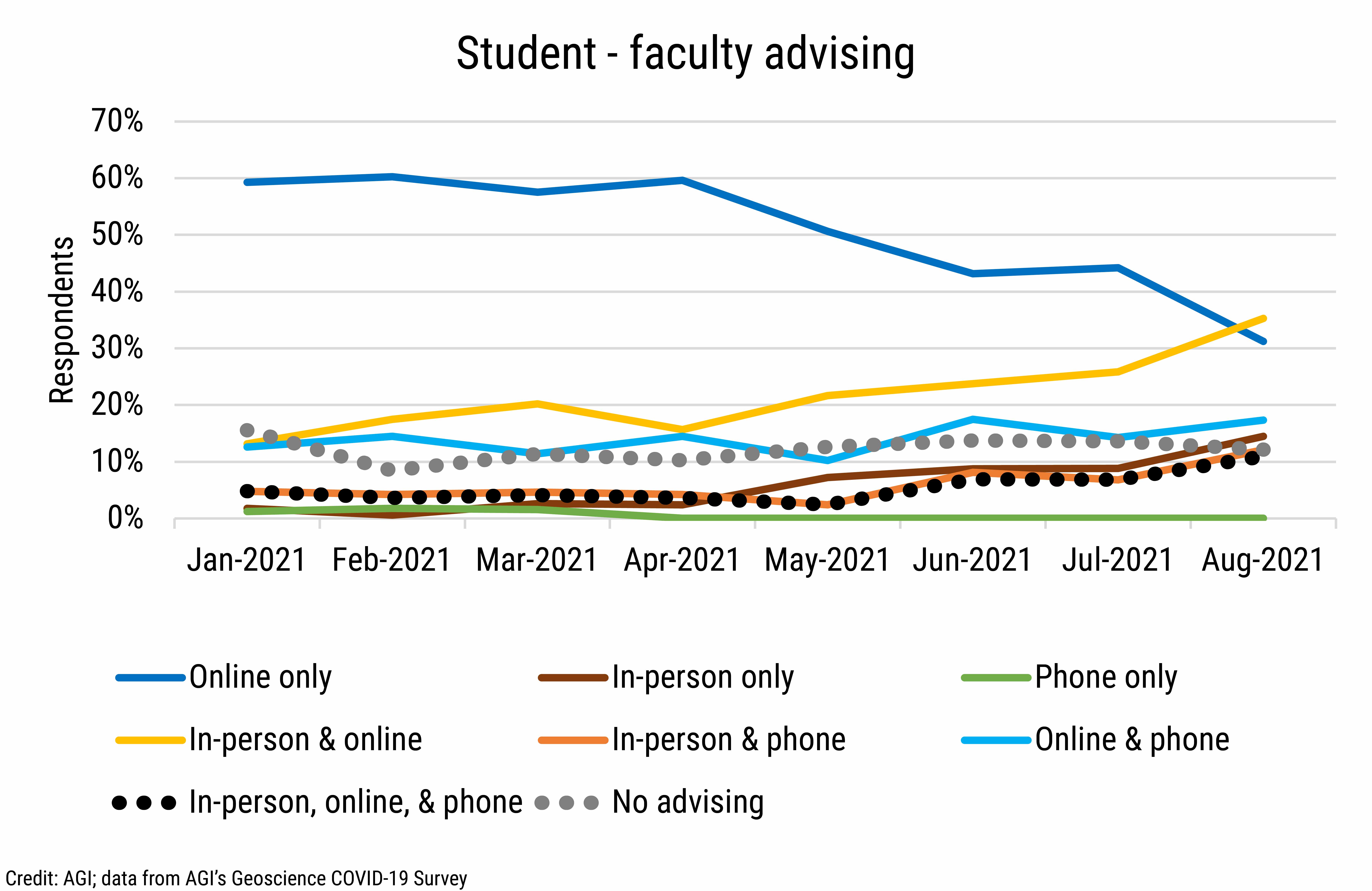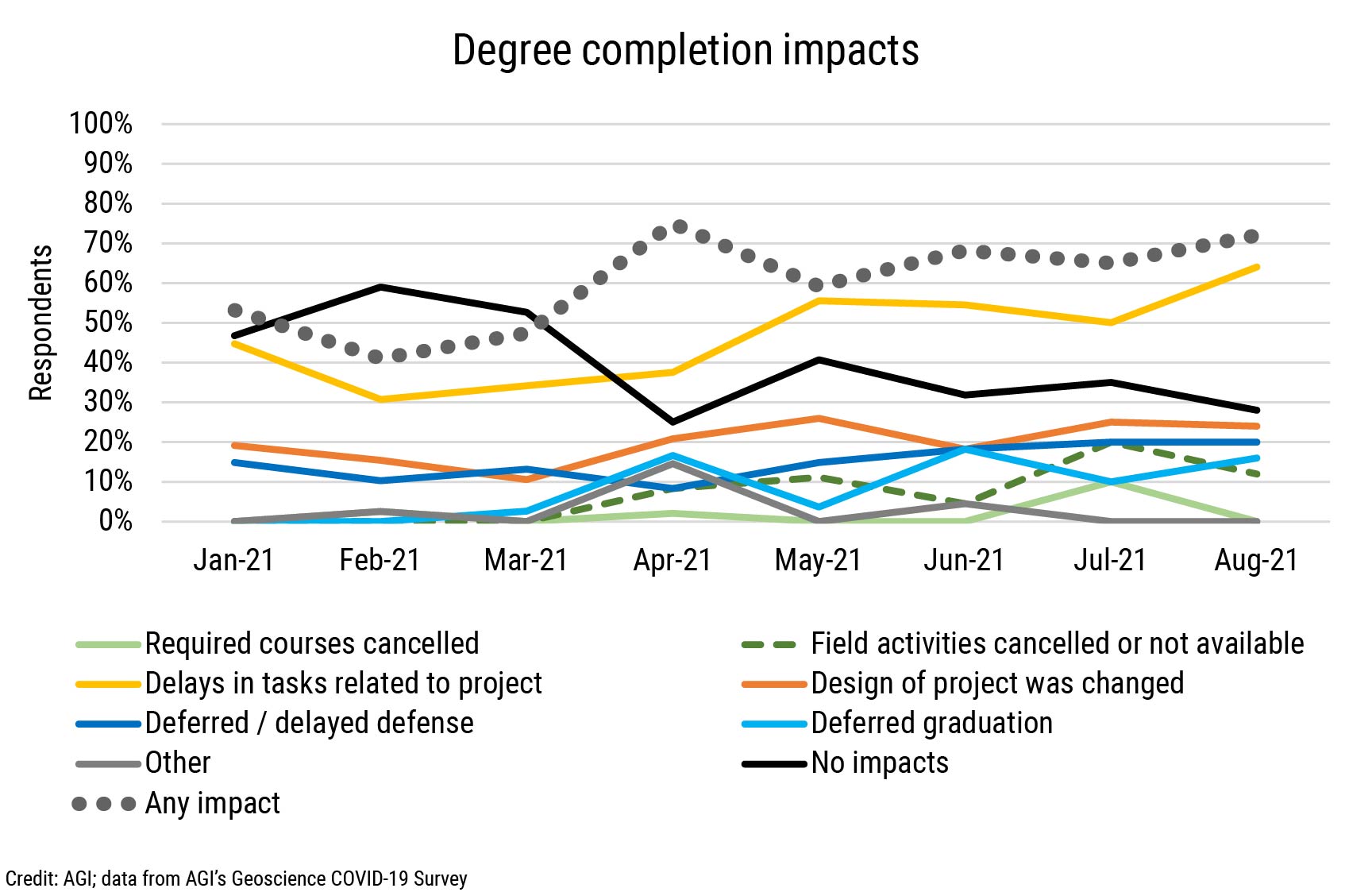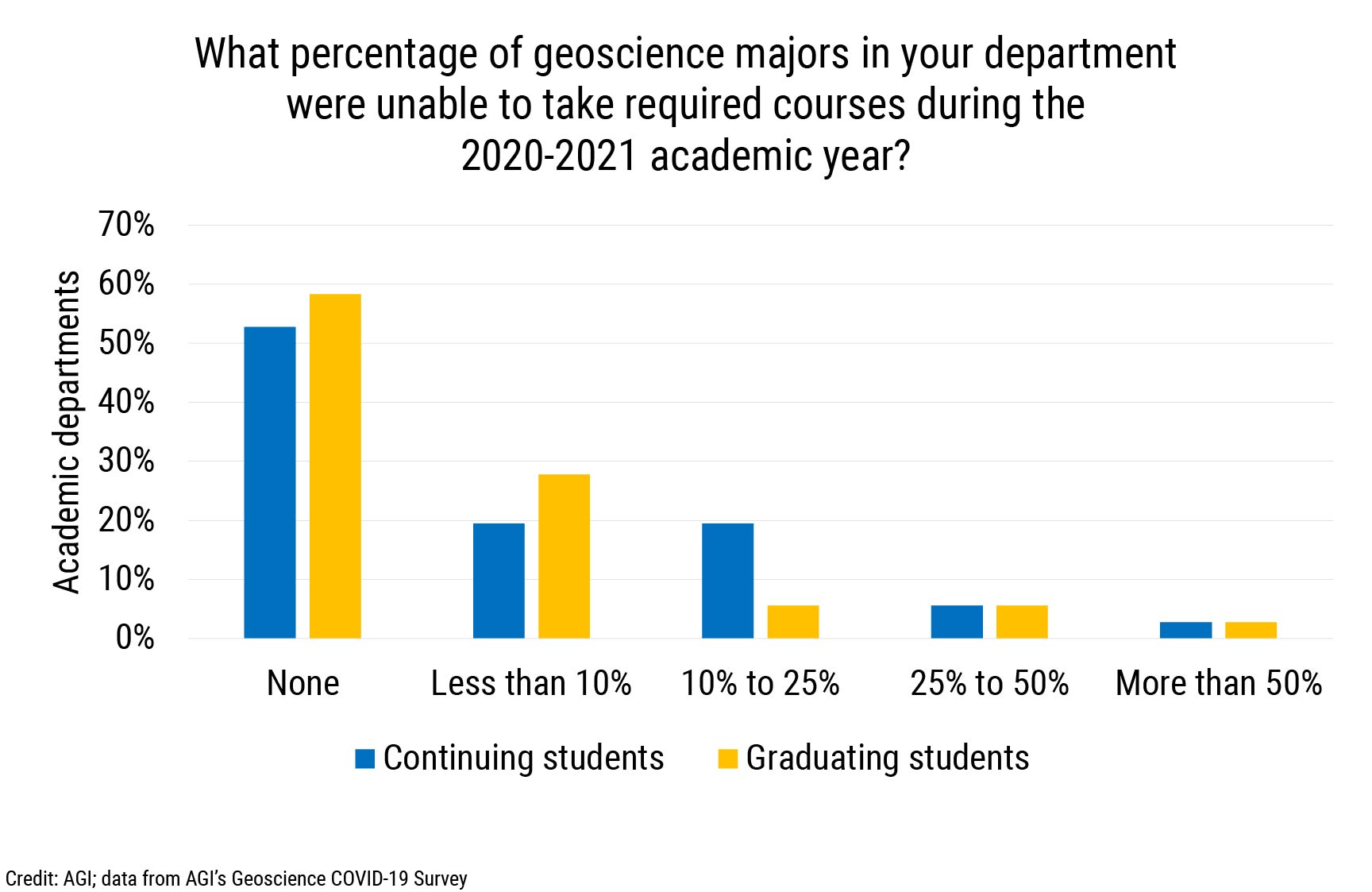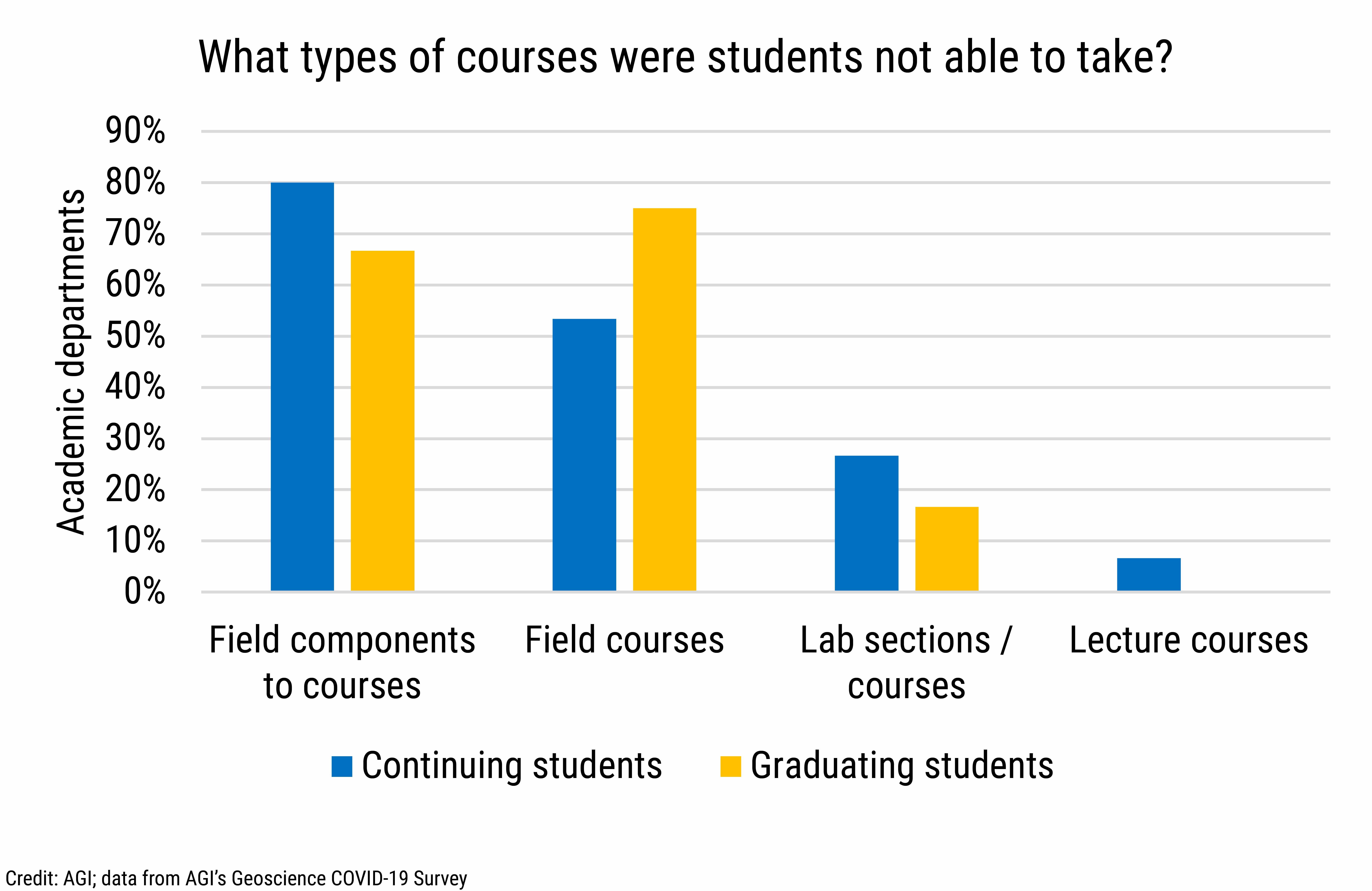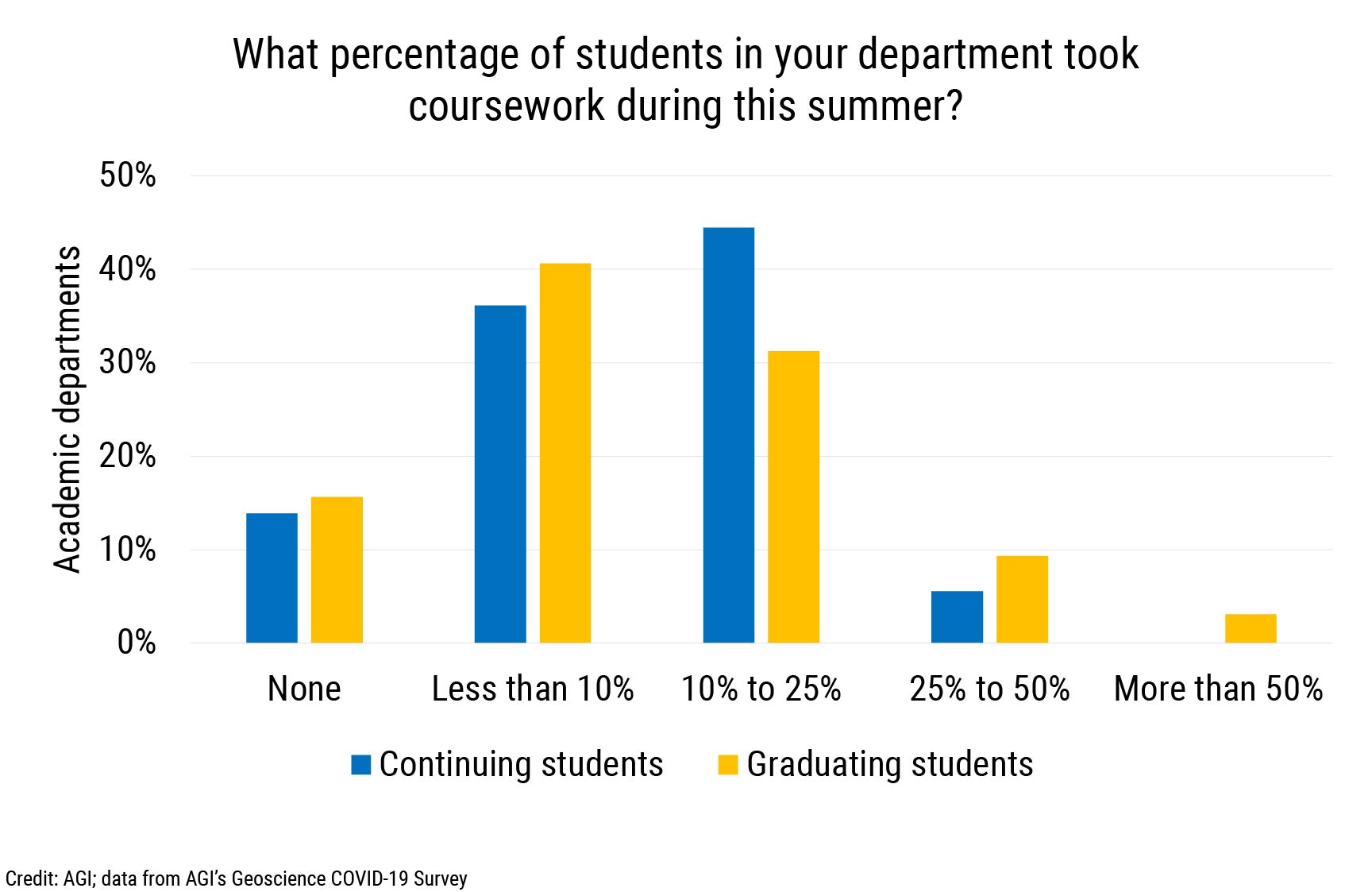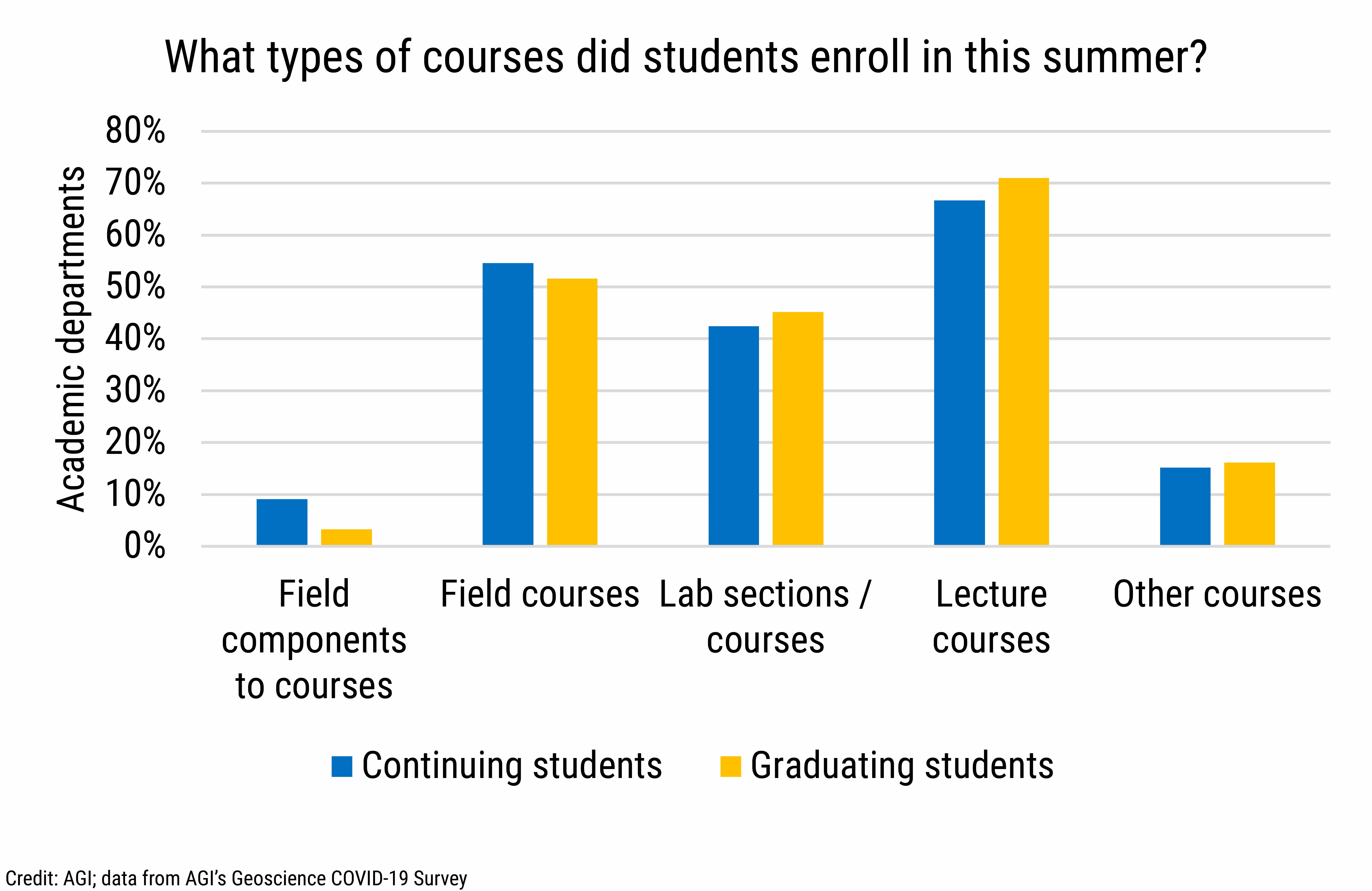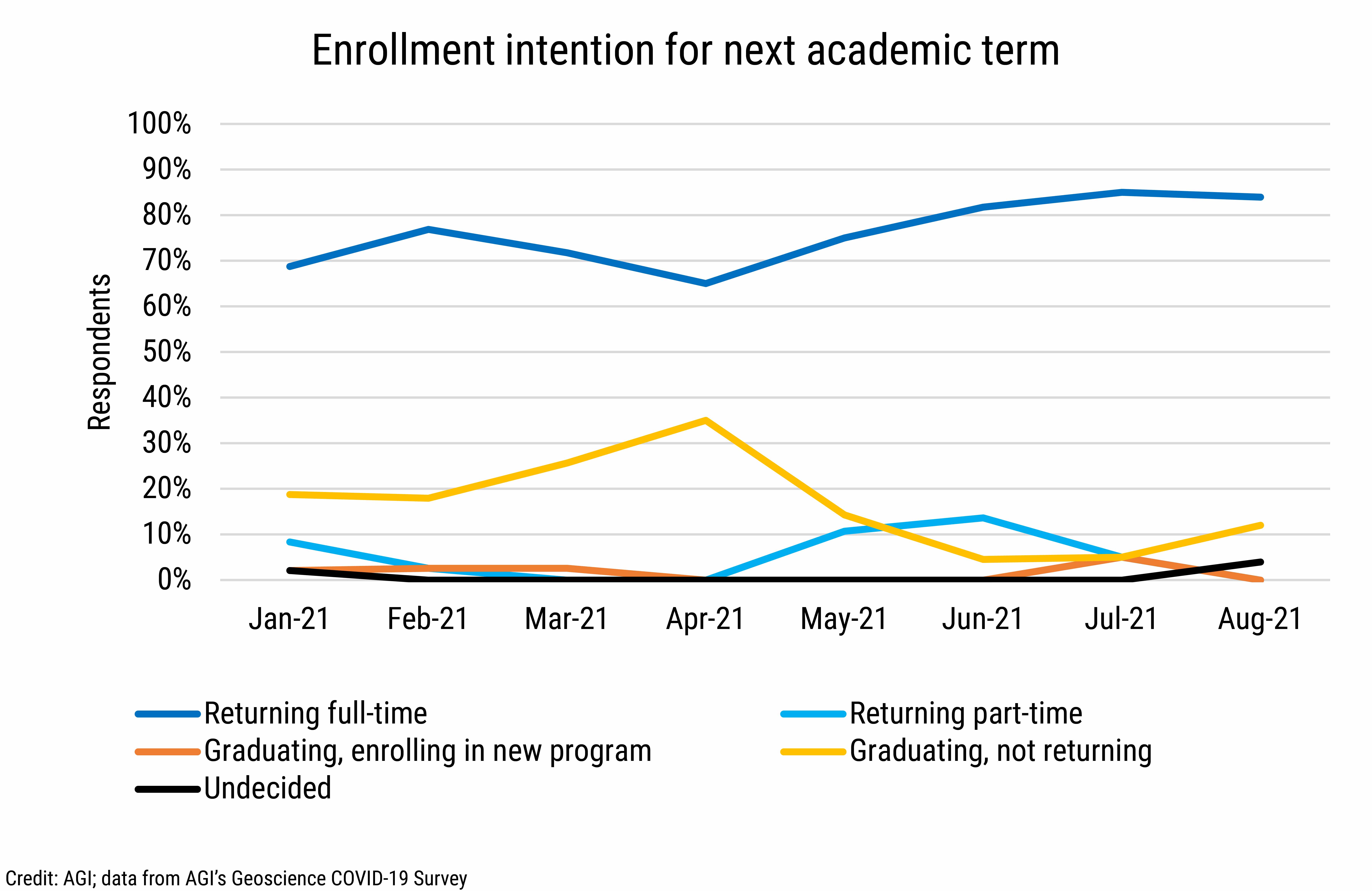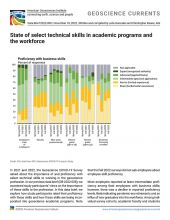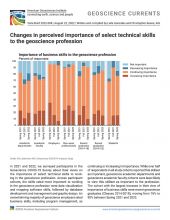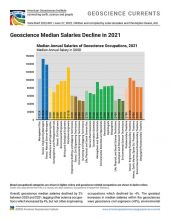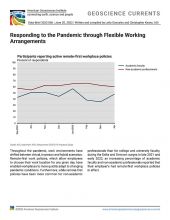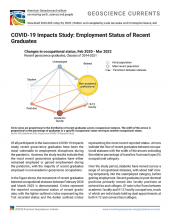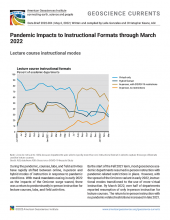University students may be the population in society to experience the most variability in experiences during the pandemic. We are monitoring experiences of geoscience students during the pandemic, including how advising is being conducted, impacts on degree progress, and students’ intent to continue in their degree programs.
Advising
Student advising was primarily done via online only formats through May 2021, after which multiple modalities for student advising became more common. With the start of the Fall 2021 term and return to in-person classes in August 2021, online only advising was reported by 31% of respondents whereas a combination of in-person and online advising was reported by 35% of respondents.
Degree progress
Since March 2021, more than half of students reported impacts to their degree progress. By August 2021, 64% of students reported delays in tasks related to their thesis, dissertation, or capstone projects, and nearly one-quarter of students indicated that the design of their thesis, dissertation or senior capstone project had been changed. In addition, by August 2021, 20% of students indicated they had deferred their thesis or dissertation defense, and 16% of students indicated they had deferred graduation.
Most geoscience students were able to take required courses for their major during the 2020-2021 academic year. However, 28% of departments reported that 10% or more continuing students were unable to take required courses in the 2020- 2021 academic year, and 14% of departments reported the same for graduating students. Furthermore, 57% of departments indicated that up to a quarter of students delayed their graduation to complete their degree requirements.
More than half of departments indicated that continuing and graduating students were unable to take field courses and courses with field components. Topics commonly mentioned as being unable to take included field methods (mapping, field skills, cross-sections, measurement, etc.), minerology, sedimentology, structural geology, environmental science, and lab methods.
Departments adapted during the 2020-2021 academic year to support their students who were unable to meet degree requirements by accepting substitutes for courses that were not taught during the pandemic and waiving credit and course requirements. Departments mentioned how some students delayed graduation to take field courses and other courses that had significant field components in 2021 when in-person options for the courses were available. Other departments mentioned how students took courses from other universities for courses that were not currently being offered at their home institution. Some departments offered field course spaces first to students who were unable to complete their field courses in 2020, and others mentioned how continuing students would be allowed to participate in class-based field activities in the 2021-2022 academic year for no additional cost.
Summer enrollment
Most departments indicated that continuing and graduating students took coursework over the summer term, with 81% of departments indicating that up to one-quarter of continuing students took coursework over the summer and 72% of departments indicating the same for graduating students. More than half of departments indicated that continuing and graduating students took lecture courses and field courses during the summer, and just over 40% of departments indicated that both cohorts of students took lab courses. When asked to compare summer enrollments during 2021 to pre-pandemic summer terms, 60% of departments reported that summer enrollments were about the same and 37% indicated enrollments were lower than pre-pandemic summer terms.
Intent to continue
In April 2021, about one-third of students participating in the study indicated they would be graduating by the next academic term. Aside from those students who indicated that they would be graduating and entering the workforce, over two-thirds of students participating in the survey indicated their intent to continue full-time with their studies.
We will continue to provide current snapshots on the impacts of COVID-19 on the geoscience enterprise throughout the year. For more information, and to participate in the study, please visit: https://www.americangeosciences.org/workforce/covid19
Funding for this project is provided by the National Science Foundation (Award #2029570). The results and interpretation of the survey are the views of the American Geosciences Institute and not those of the National Science Foundation.


